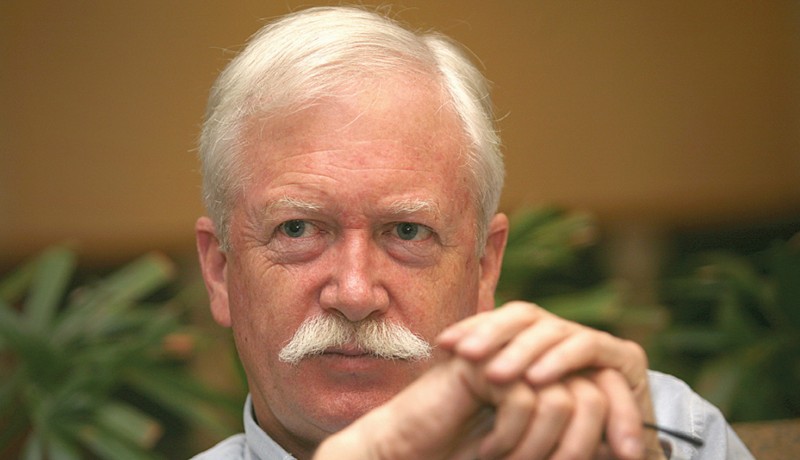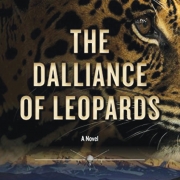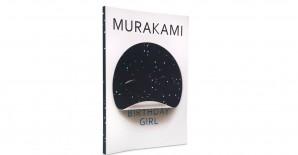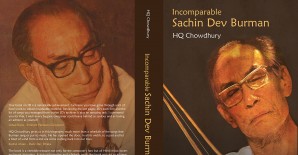
Etcetera

If versatility is the yardstick for measuring the artistry of an author, Mussoorie-based Stephen Alter stands apart. Over the years, he has written 18 books, both fiction and non-fiction with equal ease. His novels are in different genres, while his non-fiction tackles a wide variety of subjects.
His latest novel, The Dalliance of Leopards (Arcade; ₹ 1,831; 344 pages), is an international spy thriller a la John Le Carre, exploring the geopolitical fault lines of South Asia. India’s legendary fictional spymaster Col Imtiaz Afridi and his brilliant analyst Anna Tagore—principal protagonists in his earlier novel The Ratanban Betrayal—join hands again and are at their astute best.
Alter himself doesn’t fit into a straightjacket ethnic profile. He is of American lineage, but was born and raised in Landour, Mussoorie. His wife of 40 years, Ameeta, is Punjabi by birth but grew up all over India as her father served in the Indian Air Force. Though their two children, Jayant and Shibani, were born in India, they grew up in diverse places like Hawaii, Cairo and Boston, where their parents moved from time to time.
For this American desi, Mussoorie is much more than home. He was born here, to American missionary parents, in 1956. His grandparents came to Mussoorie in 1916 as missionaries to study at the Landour Language School. Later, work took them to Sialkot, Rawalpindi and Abbottabad (now in Pakistan). His father Robert Alter was born in Srinagar, Kashmir. In a way, the Alter family is inextricably linked with Woodstock, Mussoorie’s famed international school. His grandfather was its principal in the 1930s. His parents, too, were respected staffers at Woodstock for more than 30 years. In a rare achievement, his father Bob Alter was appointed principal in 1968. Thus, for the young Stephen, Woodstock was both his home and alma mater. In an interview with Raj Kanwar, the author reveals what makes the chief protagonist of his latest thriller smarter than James Bond and shares his attempts at deciphering the enigma that was Jim Corbett. Excerpts from the interview:
The Dalliance of Leopards is your second international espionage thriller in three years after The Ratanban Betrayal. Is it a sequel?
Yes, this is a sequel. I enjoyed the opportunity to write about several familiar characters who face new problems and adversaries. Much of the story revolves around covert activity in the borderlands of Afghanistan and Pakistan, though we see it from the perspective of Col Afridi, who directs operations from his headquarters in Mussoorie. His nemesis is a shadowy character known as Guldaar, who controls a criminal empire that stretches from South Asia to the Middle East in collusion with the CIA and ISI. The climax takes place at Humayun’s Tomb in Delhi and aboard what used to be called The Frontier Mail, a train with a romantic history.
Is there a likelihood of your latest offering being made into a movie with Col Imtiaz Afridi as the central character, just like James Bond?
I certainly hope so. However, Col Afridi isn’t James Bond. He’s smarter, subtle and more calculating. Anna Tagore is the one who carries through Afridi’s orders and has a license to kill. She is an independent, resourceful agent who is prepared to risk her career when she believes in a cause.
Would you categorise In the Jungles of the Night, a novel about Jim Corbett published in August 2016, as a thriller too?
In the Jungles of the Night is a thriller, but different from The Dalliance of Leopards. It’s more like a detective story set in the forests of India, with an exploration of Jim Corbett’s character and personality. We all know him for his hunting exploits and appreciation of nature. In my book, I’ve tried to explore certain aspects of his life that don’t get revealed in his own books or biographies. At the same time, I’ve tried to recreate his style of storytelling. It was gratifying to hear from many reviewers and readers that they felt as if Corbett was talking to them through the book.
Tell us about your college days in the US.
After finishing high school at Woodstock, I went to the US for college and attended Wesleyan University. I learnt a lot about writing from my professors, Kit Reed and Paul Horgan. But I was homesick for India. As soon as I finished my degree, I came back here and began writing full time.
Did you enjoy your stint as a teacher?
I have taught creative writing for 17 years, at the American University in Cairo and at MIT. Teaching is something I enjoy. However, I hate marking papers and giving grades. Now that I’m no longer teaching, I miss the opportunity to meet with students and hear their stories.
When and where did you write your first novel and what was it about?
Neglected Lives was my first novel, written in college and published in 1978. It was about a hill station like Mussoorie and I suppose I wrote it out of a sense of nostalgia for home, though it wasn’t a particularly cheerful book. All The Way to Heaven was published much later in October 2000. I often used to hesitate when asked a simple question, ‘Where are you from originally?’ Although I looked American with the trace of a British accent, my reply that I was from a hill station 7,000 ft above sea level, in the Himalayas in India, would generally shock people. In All The Way to Heaven, a nonfiction memoir, I have written about my family, my Indian friends and my memories, both exotic and mundane.
Tell us about your wife.
I married Ameeta because I fell in love with her. In a few months we’ll celebrate our 40th wedding anniversary. She’s always been an inspiration and a distraction, for all the right reasons.
How are your children doing?
Our son Jayant works for Patagonia, the outdoor/adventure gear company. Shibani, our daughter, is a production supervisor in Hollywood and has worked on a number of big films such as Life of Pi and American Hustle. I’m very proud of both of them, particularly because they’ve grown up to be smart, mature individuals, with a great sense of humour and an ability to put things in perspective.
You have authored nearly 20 books in a career spanning 36 years. What is your daily writing routine?
I try to write 1,000 words daily. After 40 years in this business, all those words begin to add up. I don’t think of 18-20 books as prodigious or prolific. There are several books I’ve written that never got published because you have to discard as much as you retain.
Why did you step down as the founding director of the Mussoorie Writers’ Mountain Festival after the 7th edition in 2015?
The Mussoorie Mountain Festival was a lot of fun to organise. I directed seven editions between 2006 and 2015, but decided it was important to hand it over to others rather than hang on to it forever.
Photo: Arun Kumar
Featured in Harmony — Celebrate Age Magazine
April 2017
you may also like to read
-
Cracking the longevity code
Small yet impactful choices can be game-changers, writes Srirekha Pillai At 102, there’s no stopping Chandigarh-based Man Kaur, the world’s….
-
Home, not alone
While a regulatory framework is vital for senior-care facilities, the need of the hour is to develop an ecosystem to….
-
Birthday Girl
Published in a special edition to honour Japanese master storyteller Haruki Murakami’s 70th birthday, Birthday Girl (Penguin; Rs 100; 42….
-
A huge treat for music lovers
Published as the revised and updated second edition, Incomparable Sachin Dev Burman (Blue Pencil; Rs. 599; 470 pages) the authoritative….








